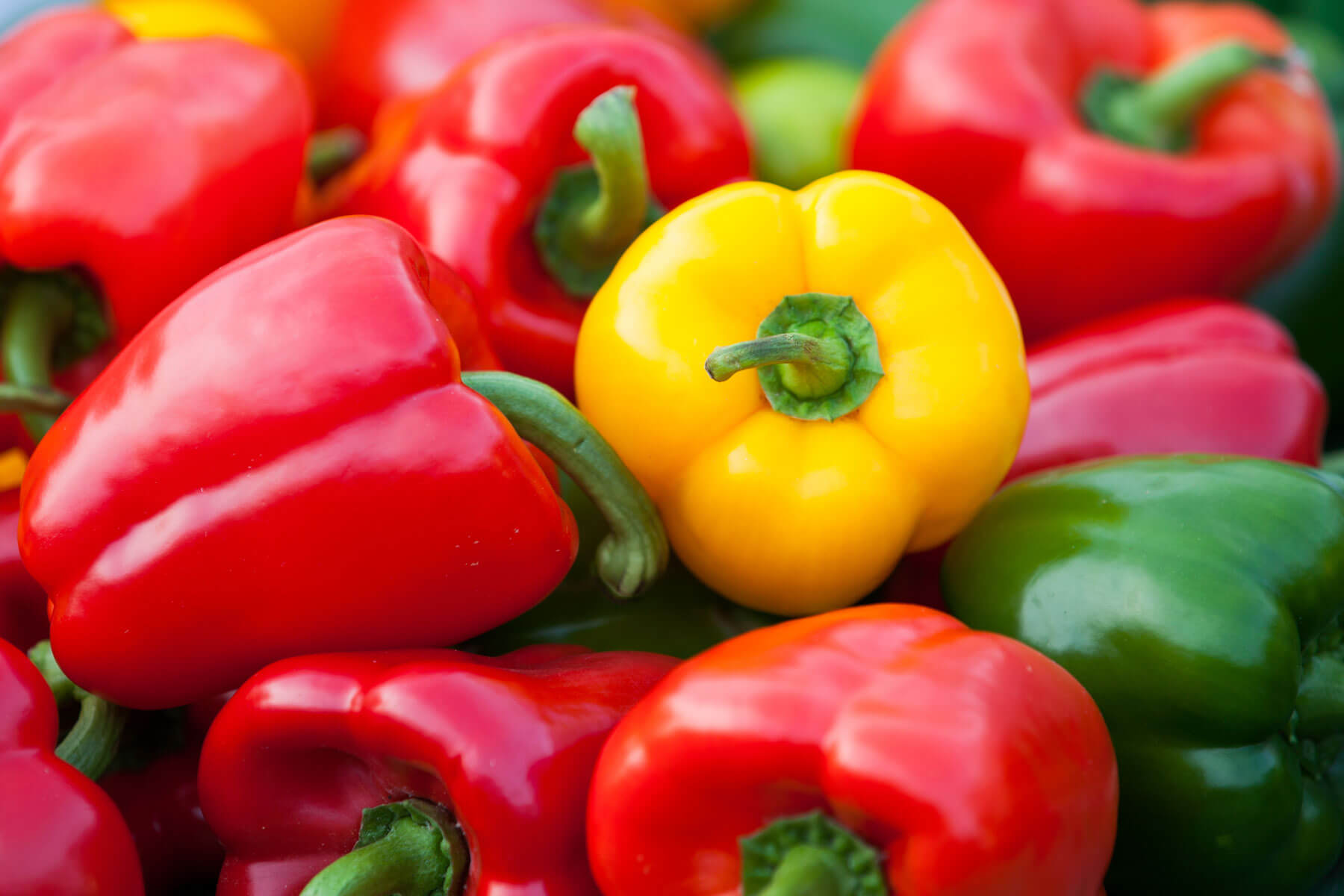Best Fertilizers for Peppers: A Comprehensive Guide to Boost Your Harvest
Organic Vs. Synthetic Fertilizers: Which Is Best for Supporting Healthy And Balanced Pepper Plants?
In the realm of supporting healthy pepper plants, the option in between synthetic and natural plant foods stands as a critical decision with far-ranging ramifications. While both alternatives objective to supply vital nutrients to sustain plant development, the subtleties of their influence on the dirt, plant health, and the setting stimulate a discussion that echoes throughout the gardening area. Comprehending the distinctive benefits and prospective mistakes of each fertilizer kind is vital for pepper growers seeking to enhance their yields while preserving a sustainable and eco-conscious strategy.
Benefits of Organic Fertilizers
Organic fertilizers supply an environmentally-friendly and lasting technique to beneficial pepper plants, offering crucial nutrients without making use of synthetic chemicals. These natural plant foods are originated from organic resources such as compost, manure, bone meal, and seaweed, advertising soil wellness and biodiversity. Unlike artificial plant foods, organic alternatives release nutrients slowly, guaranteeing a steady and well balanced supply for pepper plants to thrive.
One substantial advantage of natural plant foods is their ability to boost dirt framework and water retention. By improving dirt health, natural plant foods promote valuable microbial activity, which aids in nutrient uptake by pepper plants. Additionally, natural plant foods minimize the threat of chemical run-off, safeguarding water sources from contamination and guarding the environment.
Additionally, natural plant foods add to long-lasting soil fertility by advertising the development of useful dirt organisms. These organisms aid damage down organic issue, launching nutrients in a kind that is easily accessible to pepper plants. best fertilizers for peppers. By promoting a healthy soil ecosystem, organic plant foods support sustainable pepper cultivation methods that benefit both plants and the environment
Downsides of Artificial Plant Foods
Synthetic plant foods, unlike their organic equivalents, present various downsides when used to nourish pepper plants, influencing both plant health and wellness and environmental sustainability. One major downside of synthetic plant foods is their propensity to seep nutrients from the soil promptly. This fast leaching can result in nutrient inequalities in the dirt, causing plants to deal with deficiencies or toxicities. Additionally, artificial plant foods can damage beneficial dirt organisms, such as earthworms and useful microorganisms, disrupting the dirt community's balance.
In addition, the overuse of artificial fertilizers can add to water contamination. Excess fertilizers not taken in by plants can wash away right into water bodies, causing eutrophication, where algae blooms deplete oxygen degrees in the water, harming marine life. Artificial fertilizers are usually acquired from non-renewable resources, such as fossil fuels, contributing to carbon discharges and ecological degradation during their production.
Nutrient Absorption Contrast
Reliable nutrient absorption plays an essential duty in the overall health and original site development of pepper plants. When comparing synthetic and natural plant foods in regards to nutrient absorption, natural plant foods have the benefit of providing an extra balanced and slow-release source of nutrients (best fertilizers for peppers). Organic fertilizers consist of a selection of macro and micronutrients that are not just helpful for the plants but likewise promote healthy and balanced dirt microbial task, which helps in nutrient uptake. On the other hand, synthetic fertilizers commonly give a quick release of nutrients, which can cause seeping and drainage, leading to reduced nutrient absorption prices by the plants.
Furthermore, natural plant foods improve soil structure and water retention capability, permitting pepper plants to access nutrients much more effectively. This better dirt top quality assists in root advancement, allowing much better nutrient absorption. Artificial plant foods, although initially enhancing plant development as a result of their high nutrient concentrations, may impede lasting nutrient absorption by derogatory soil health and wellness in time.
Environmental Influence Factors To Consider

On the various other hand, artificial fertilizers, although frequently even more concentrated and instantly available to plants, can have destructive results on the setting if not applied appropriately (best fertilizers for peppers). Their manufacturing requires high power inputs, resulting in greenhouse gas discharges and adding to climate modification. The runoff of excess artificial plant foods can infect water resources, leading to eutrophication and damaging aquatic environments.
Finest Plant Food Practices for Peppers
When fertilizing pepper plants, maximizing nutrient uptake and decreasing ecological impact are essential considerations. To accomplish this, it is necessary to adhere to finest plant food methods tailored to the specific needs of pepper plants. One crucial technique is to execute a dirt test before applying any type of plant foods. This examination can determine the pH level of the dirt and recognize any type of nutrient deficiencies, directing you in selecting the most appropriate plant food solution.
Another essential method is to fertilize pepper plants at the right time. Usually, peppers benefit from getting plant food at growing and then again when they start to flower. Over-fertilizing can result in nutrient discrepancies and harm the plants, so it is crucial to comply with suggested application rates.
Additionally, picking a balanced plant food with an NPK proportion that matches pepper plants' needs is essential. Inevitably, see this page combining synthetic and natural fertilizers judiciously can help nurture healthy pepper plants while lessening ecological influence.
Verdict

Organic plant foods supply an environmentally-friendly and sustainable technique to nourishing pepper plants, offering necessary nutrients without the usage of artificial chemicals. Unlike synthetic fertilizers, natural options launch nutrients slowly, ensuring a consistent and well balanced supply for pepper plants to prosper.
Artificial fertilizers, in contrast to their natural equivalents, posture different disadvantages when made use of to nurture pepper plants, affecting both plant health and these details environmental sustainability. When comparing artificial and organic plant foods in terms of nutrient absorption, organic fertilizers have the benefit of giving a much more balanced and slow-release source of nutrients.Moreover, natural fertilizers enhance soil framework and water retention capability, allowing pepper plants to accessibility nutrients much more successfully.